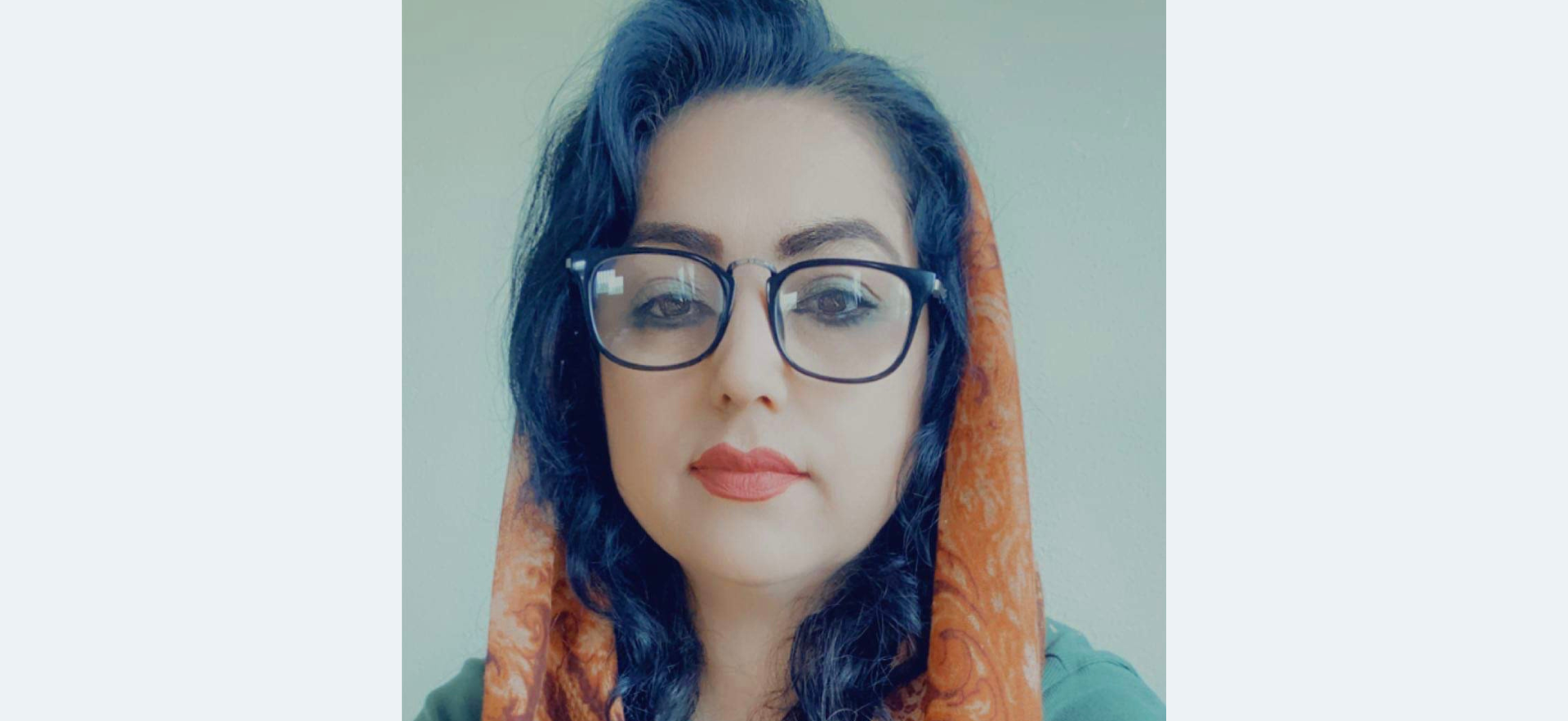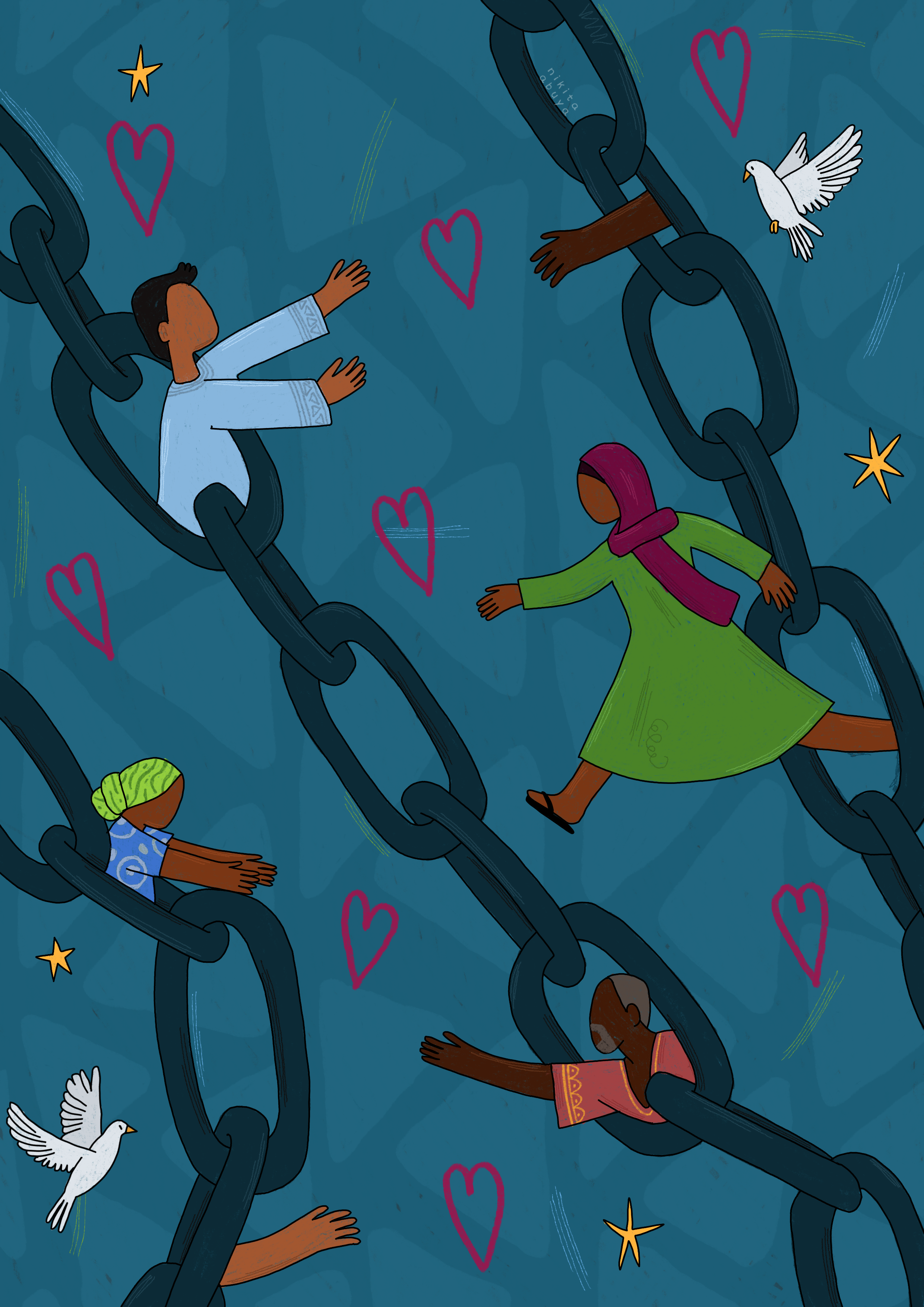Can you introduce yourself in just a few words?
My name is Farukhleqa Unchizada, and I am of Uzbek ethnicity. I was born in Pashtunkot in the district of Faryab province, Afghanistan. Due to my interest in politics, I studied Political Science as an undergraduate and furthered my studies to gain a master’s degree in international public law.
I have 17 years of experience working in the human rights sector. I am proud of my human rights activities, where I fulfil my responsibility to protect and promote women’s s rights in Faryab province, Afghanistan.
Was there a defining moment in your life that drove you to work for the defense of women’s rights?
In 1997, when the Taliban occupied the north of Afghanistan, I was a university student at the time. The Taliban, by imposing strict regulations, discriminated against women in any way possible, simply because we were female. Women and girls were banned from attending school, studying, working, leaving the house without a male companion, and being involved in political and social activities.
Gender discrimination, patriarchy, inequalities, women’s lack of access to justice, girls staying away from education, forced marriages, and marriages before reaching the legal age – all these things that existed in my society compelled me to stand with women and defend their rights.
What would Afghanistan look like in say, 20 or 30 years, if things went in the direction that you would like them to go? And how do you think your work contributes to bringing that vision about?
Afghanistan has been burning in the flames of war for more than 40 years. Born into this wartime reality, I have never known a single day of peace.
During the past 20 years, opportunities for participation by all ethnicities within the government system were provided. The country’s constitution enshrined the rights and duties of citizens, along with the government’s obligations towards its people. We, the women of Afghanistan, held a significant number of key positions in government offices. We served as parliament members, senators, ministers and deputies, judges in courts, governors, defense lawyers, diplomats, heads of various government offices, police officers, singers, businesswomen, teachers, and even taxi drivers. We were present in all departments, working towards a brighter future.
Unfortunately, all our achievements were lost overnight. After 15 August 2021, Afghanistan descended into darkness, its future uncertain.
Have you been the target of attacks or acts of harassment or reprisals as a result of your work?
I have been threatened with death several times and have been both physically and verbally assaulted by Talibans. As a Human Rights Officer in the Faryab UNAMA field office, my duties included monitoring, investigating, and documenting conflict-related incidents that resulted in civilian casualties. I also documented cases of violence against women, other violations of women’s rights, and violations against conflict-related detainees held in National Directorate of Security (NDS) and Ministry of Interior (MoI) detention facilities. Additionally, I advocated for equitable representation of civil society and women in the Afghan Peace and Reconciliation Process. It was also my responsibility to maintain a general and up-to-date knowledge of human rights issues, including relevant political and legal developments in Faryab Province.
Throughout my mission, I travelled to districts and villages to conduct awareness programs. Some people there disapproved of my efforts to educate women about their human rights. They accused me of trying to change the minds of their women and destroy their families. Despite this resistance, I remained committed to raising awareness about women’s rights. My human rights activities have resulted in significant achievements in the areas of women’s empowerment, equity, and equality. These efforts have had a profoundly positive impact on the lives of many girls and women across Faryab province.
Do you have a message to the UN and/or the international community?
I urge the United Nations and the international community to hold the Taliban accountable for the crimes they have committed against the Afghan people. Over the past twenty years, the Taliban has shed the blood of thousands of innocent people in their pursuit of power. They must be held responsible for their human rights violations and their imposition of gender apartheid.
Do you have a message for other women human rights defenders from Afghanistan?
As a woman, I am immensely proud of the Afghan women. Despite facing immense challenges, they bravely fought against the Taliban. Their unwavering determination and unity prevented international recognition of the Taliban regime. I stand with all Afghan women. Together, we will achieve our goals and regain access to our human rights in the near future.


